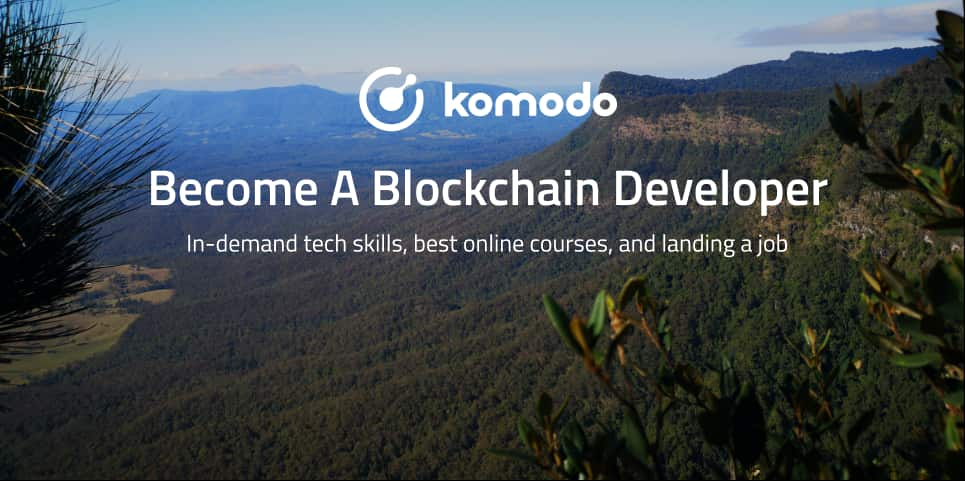Blockchain development might be the most in-demand skill on the planet today. Everything from Dogecoin to NFTs to institutional adoption of crypto has caught the world by storm. Behind all of the news is a complex technology and blockchain developers - the people who build the technology every day.
What Is A Blockchain Developer?
The first questions you might ask are what is a blockchain developer and what do they do? In basic terms, a blockchain developer builds decentralized ledger technologies and applications that run on top of those technologies. In many cases, a blockchain developer is building the protocol itself (e.g. creating or implementing consensus mechanisms) and applying asymmetric encryption. In other cases, it might be building a decentralized exchange, lending protocol, or NFT marketplace to run on an existing protocol. Although technology is constantly evolving in many industries, blockchain technology moves at a more rapid pace. Depending on what you’re aiming to do, you will need to choose from any number of blockchain programming languages, tools, and technologies.
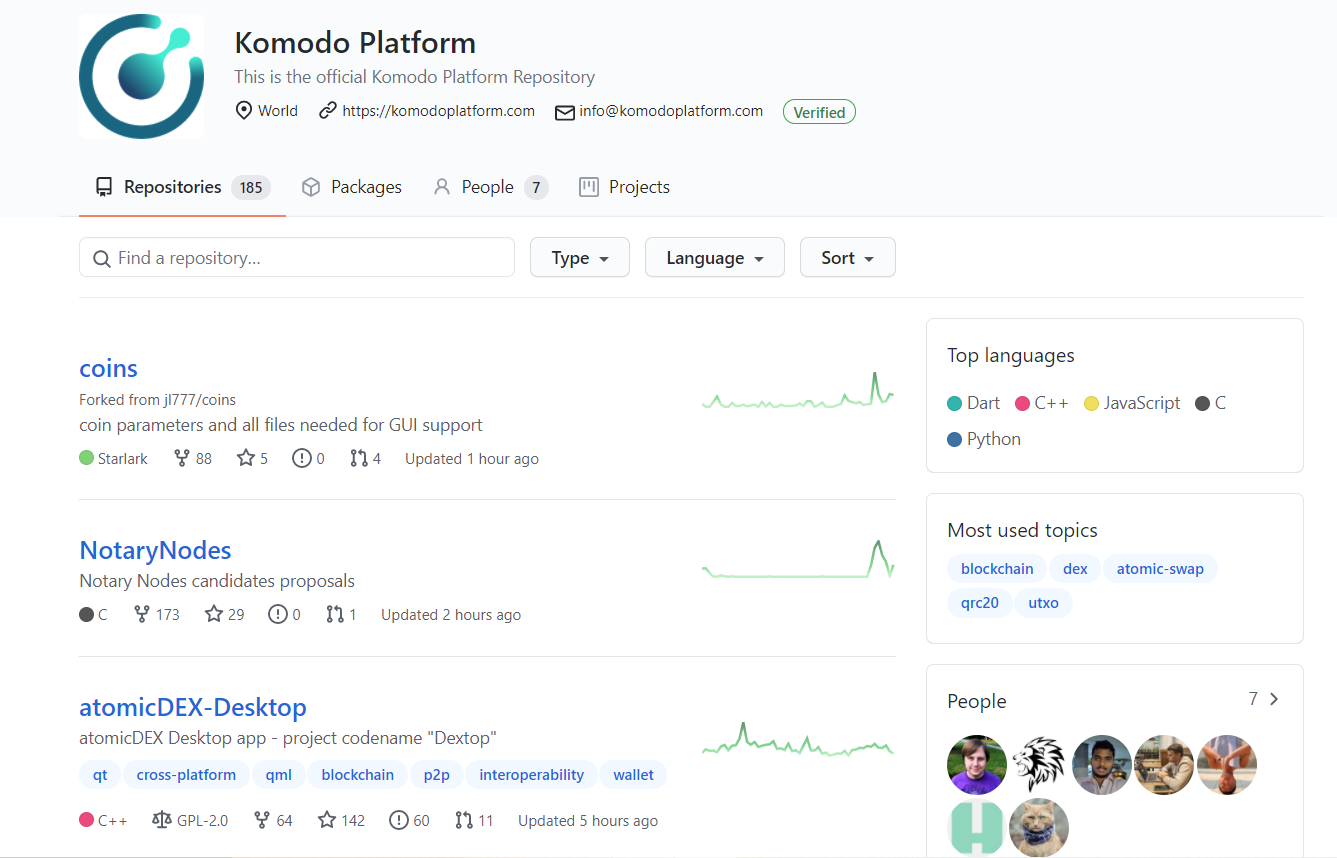
Why Learn Blockchain Development?
Before looking at how to become a blockchain developer, it’s important to ask yourself why you might want to pursue this path. Many developers point to the three points mentioned here.
Blockchain Is Exciting
If you’re someone who likes working on cutting-edge technology, blockchain is the best sector to be in right now. From a wider technology perspective, it’s easy to find a variety of new milestones being achieved almost every day. From an adoption standpoint, blockchain is becoming increasingly popular in mainstream society. In short, this technology is now a big part of our everyday lives. Whether you want to build a blockchain for supply chain logistics, decentralized healthcare recordkeeping, or other blockchain use cases, the possibilities are practically limitless.
Good Salaries, Job Openings
According to ZipRecruiter, the average blockchain developer based in the US makes between $130K to $160K per year, with salaries being lower or higher depending on factors like global geolocation, skills, and experience. While the salary range tends to be quite wide, there’s no doubt that blockchain developers make significantly more than the average profession - and even more than most other technical jobs. Another major benefit is that there are plenty of job openings in this industry as more organizations look towards blockchain as the technology of the present and future. The great thing is you can use your skills to work basically anywhere - from small startups to large financial institutions and enterprise organizations.
Be A Part of A Global Movement
One of the best perks of being a blockchain developer is that you belong to a larger movement. Blockchain developers are bringing innovation that empowers people to take control of their futures. You might have a goal to bank the unbanked and open up greater financial access to developing nations. You may want to help individuals who are seeking a hedge against inflation/hyperinflation. These are just two of many possible selfless motivations to build technology and solutions that benefit the world.
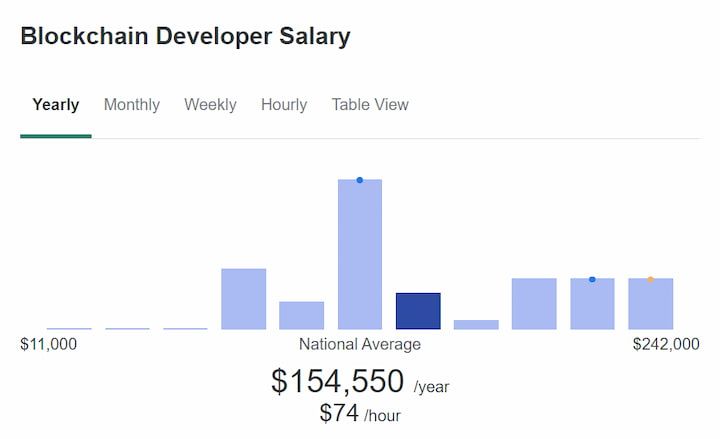
What Skills Do I Need to Become a Blockchain Developer?
There are at least five skills you’ll need to become a blockchain developer. While a background in computer science is helpful, it’s definitely possible to follow these steps to learn how to become a blockchain developer from scratch.
Public Key Cryptography
Blockchain security is based on public-key cryptography. Cryptographic hash functions, for example, support the creation of digital signatures that can be used to ensure that data sent over blockchains remains secure and tamper-proof. As a blockchain developer, it’s possible that you may be trying to create totally new cryptographic hash functions. But it’s more likely that you’ll want to start by understanding existing classes of cryptographic hash functions like Secure Hashing Algorithm (SHA-2 and SHA-3), RACE Integrity Primitives Evaluation Message Digest (RIPEMD), Message Digest Algorithm 5 (MD5), and BLAKE2.
Smart Contract Technology
Ethereum is widely known to be the first blockchain protocol to support smart contracts. However, nowadays smart contracts are an integral part of several blockchain networks. Qtum, Avalanche, Solana, and Komodo are just a few examples of platforms that rely upon this technology for creating decentralized applications. Komodo Custom Contracts is a type of UTXO smart contract for building dApps. Hashed Timelock Contracts (HTLCs) is another special smart contract technology used on Komodo Wallet for atomic swaps - cross-chain/cross-protocol exchanges that take place across blockchains.
Data Structures
At its core, a blockchain is simply a way to organize and verify data. To understand how transactions on blockchains work, you’ll need to have knowledge about arrays, linked lists, hash tables, and merkle trees. It’s also good to have an understanding of the differences between account-based chains and Unspent Transaction Output (UTXO) based chains.
Blockchain Architecture
There are many components that go into a blockchain’s architecture. For example, public blockchain networks consist of a peer-to-peer network of nodes, block properties (e.g. block size limits, block times, etc.), specific transaction validation processes called consensus mechanisms (e.g. Proof of Work, Proof of Stake, and Delegated Proof of Stake), and many other characteristics. There are also other types of chains like private networks and consortiums as well as other DLTs such as Direct Acyclic Graph (DAG) to consider learning about.
Web Development
In most cases, blockchain applications will run on the web. Decentralized exchanges, non-custodial wallets, and other applications require an understanding of web development and UX/UI design to implement. Yes, many of the original blockchain applications relied upon the command-line, but it’s now basically a prerequisite to have a GUI that makes interacting with the blockchain easy for all users.
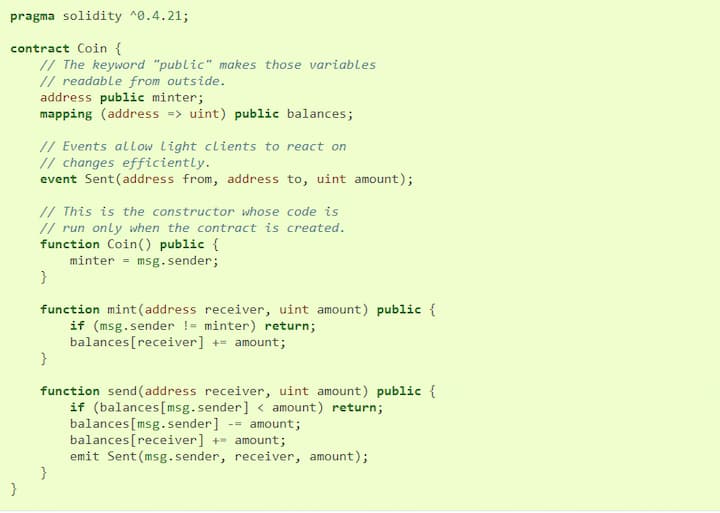
Where to Find Detailed and Trusted Blockchain Courses
There are several websites that offer affordable, often free, blockchain courses. A few popular blockchain developer course websites include the following:
Once you have acquired the base knowledge, it’s a good idea to check out the trending blockchain platforms. If you’re interested in building something on a specific blockchain network or using a specific tech stack, knowing which projects use that technology can be a good way to find more in-depth examples that inspire you. Many projects have step-by-step developer documentation and blockchain development tutorials that are more comprehensive compared to generalized online courses.
How long does it take to become a blockchain developer? That’s a fairly difficult question to answer. It really depends on the amount of time you can commit each day to learn and whether you already have a technical background. For some people, it might only take a few weeks to be fully prepared. For others, it might take a few years.
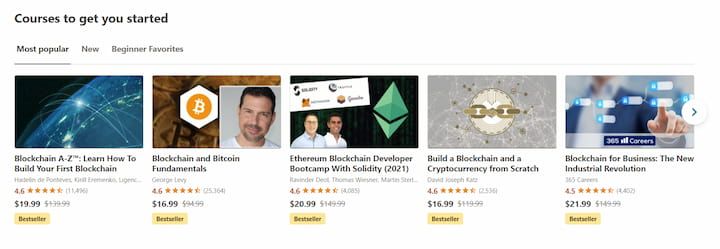
How to Get a Blockchain Development Job
Once you’ve gone through blockchain developer training, it’s time to take your career to the next level. There are many things you can do to prepare.
Build A Portfolio
Taking the knowledge you learned from online courses and applying it is the best way to get started. Let’s say you want to become a dApp developer. Can you build a basic dApp? Do you understand the code inside and out that is needed to make a user-friendly dApp? Can you customize code to make your dApp unique? These are some of the things you can do to get started. You may also want to develop your own blockchain with customizable features.
Find A Mentor or Developer Community
If you have a specific question or want advice on what to learn next, it’s good to ask your peers. There are people and even entire communities of developers who are willing to help - usually for free. Reddit, Bitcointalk, Quora, and Discord are some examples of places that have public channels where you can communicate with knowledgeable developers.
Read Requirements for Job Openings or Bounties
To determine if you’re qualified for a blockchain development job, the best place to start is with the job descriptions for open positions. Just like the term “web developer”, the term “blockchain developer” is very broad and may require you to learn specific skills. If you’re learning to develop Ethereum dApps, it’s important to learn languages like Solidity, Node, and React. You may need to learn frameworks like Truffle, Waffle, and Hardhat. Other blockchain projects may require you to learn C, C++, Rust, Golang, or other languages. Note that job titles don’t always say “Blockchain Developer.” For example, you might be specifically working as an iOS or Android developer but also interacting with blockchain technologies and building dApps.
Keep Accumulating Knowledge and Skills
Even if you do land your dream job in blockchain development, it’s crucial to keep up with new technologies in the industry. Learning blockchain developer skills is an essential part of the blockchain industry. Oftentimes, features or syntax in certain programming languages become deprecated, and you have to adapt to new changes. With new blockchains emerging and playing a greater role in the space, you may need to dive into a variety of blockchain programming languages and discover how to use methods from various SDKs. The tech doesn’t stop evolving, and the best developers are the ones that continue to adapt.
📧Komodo Newsletter
If you'd like to learn more about blockchain technology and keep up with Komodo's progress, subscribe to our newsletter. Begin your blockchain journey with Komodo today.

